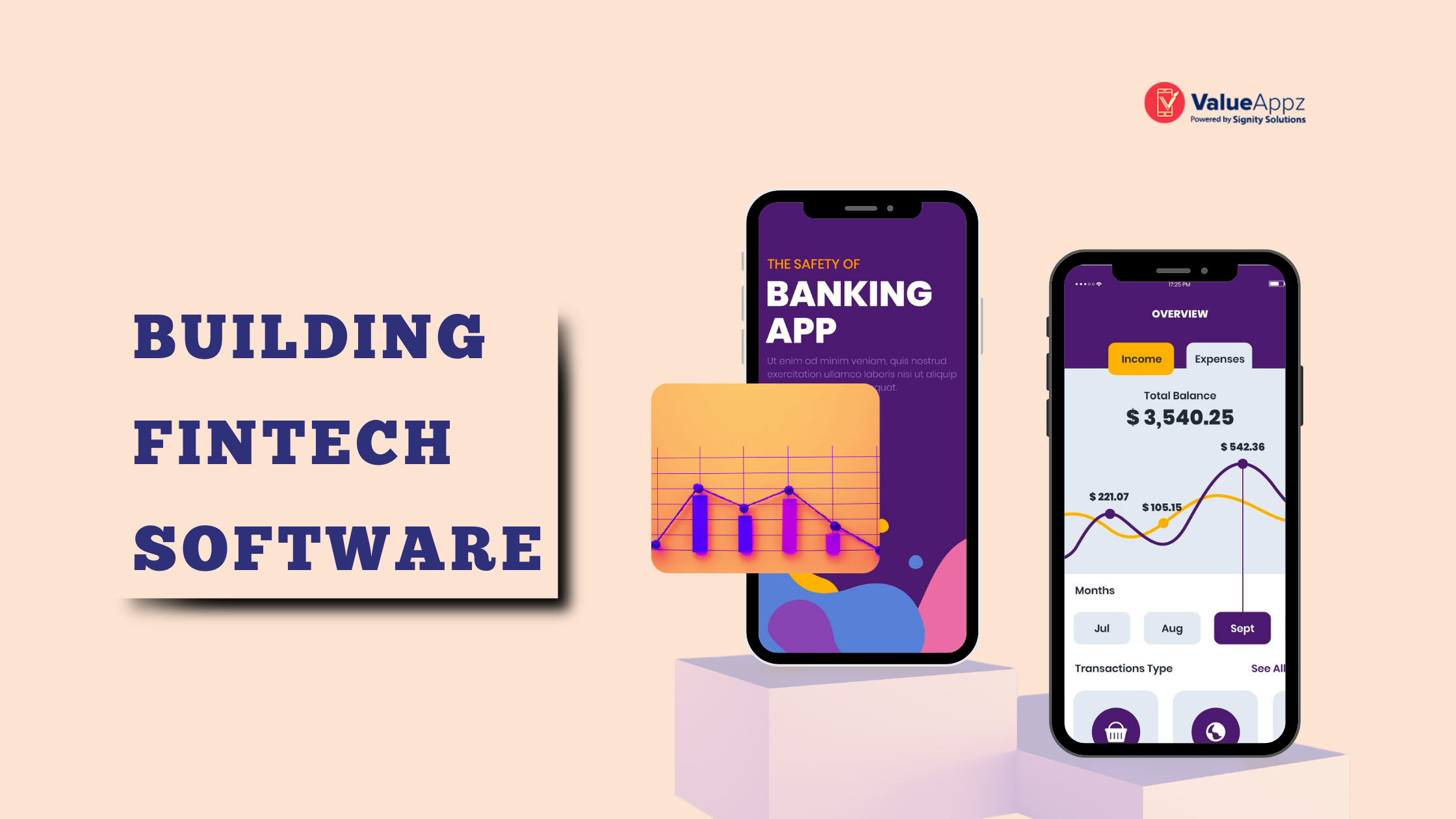How SMBs Can Leverage Emerging Tech to Improve Financial Operations

Quick Summary: With so much going on in the businesses, it is challenging for them to track all the aspects. Check our blog to understand how startups and small businesses can leverage the power of AI tools to enhance financial processes and gain the best from digital transformation.
As a startup or small business, you have to manage several business processes. From tracking marketing to managing products, inventory, and finances, it is all time-consuming.
What if we told you that you could handle all these easily?
Whether you belong to the food, grocery, or eCommerce industry, there is a regular need for financial management. From streamlining payments to keeping track of money, AI tools are the perfect solution for it.
Check our blog to explore how you can automate small business finances with emerging technology.
Table of Contents
7 Benefits of FinTech for Small Businesses
Did you know that the market value of Artificial Intelligence in finance is expected to grow by 16.5 percent by 2030? In the digital age, where there is less time to perform business operations, it’s vital to automate tasks like financial management.
1. Cloud-Based Accounting Software
Small businesses can significantly enhance their financial operations by leveraging emerging technologies like Cloud. Cloud-based accounting software like QuickBooks, Xero, or FreshBooks simplifies and automates various financial tasks, including bookkeeping, invoicing, expense tracking, and financial reporting. These platforms reduce the manual workload, minimize errors, and save valuable time, allowing business owners to focus on other core activities and in increased efficiency.
Digital technology like AI and ML further optimize financial management by analyzing data to predict cash flow trends and identify spending patterns, enabling informed decision-making and accurate budgeting. Blockchain technology enhances transaction security by providing a tamper-proof ledger, reducing fraud risks.
2. Artificial Intelligence and Machine Learning
AI and ML are other emerging technologies in finance that are meant to increase the customer experience. AI and machine learning are powerful tools that small businesses can use to analyze financial data. These technologies can predict cash flow trends, helping businesses anticipate financial needs and avoid cash shortages. By identifying spending patterns, AI and ML provide insights that improve budgeting accuracy and financial planning.
Beyond analysis, generative AI and ML can automate repetitive financial tasks such as data entry, transaction categorization, and even compliance checks. It is one of the best practices as this automation not only reduces the workload for employees but also minimizes the risk of human error, leading to more accurate financial records and better customer engagement.
3. Mobile Payment Solutions
Another major benefit of fintech apps is quick payments. Startups and small business owners can also greatly benefit from adopting mobile payment solutions such as Square, PayPal, or Stripe. These platforms allow small business owners to accept payments from customers anywhere, providing a high level of convenience and flexibility.
Moreover, these mobile payment solutions often integrate seamlessly with various accounting software, simplifying the recording and management of transactions. This integration means that every payment made through these platforms is automatically logged into the business’s accounting system, reducing the manual effort required for data entry and minimizing the risk of errors.
4. Blockchain for Secure Transactions
Blockchain technology offers significant advantages for the security of financial transactions by utilizing a decentralized and tamper-proof ledger system. Each transaction is recorded in a block and linked to the previous one, creating a chain that is immutable and transparent. This structure makes it extremely difficult for any single entity to alter the transaction history, thereby reducing the risk of fraud.
Additionally, the transparency provided by blockchain technology guarantees that all transactions are visible to authorized participants, fostering a sense of accountability. This transparency is crucial for building and maintaining trust with customers and business partners, as it guarantees that all financial transactions are recorded and verifiable.
5. Robotic Process Automation (RPA)
Robotic Process Automation (RPA) offers small businesses the capability to automate repetitive financial processes, such as invoice processing, payroll management, and compliance reporting. By automating these tasks, RPA significantly increases operational efficiency, enabling employees to focus on more strategic and value-added activities.
Implementing RPA also helps reduce operational costs. Compared to manual handling, automated processes can be executed faster and with fewer resources. This cost efficiency is particularly beneficial for small businesses operating with limited budgets.
6. Financial Analytics and BI Tools
Business intelligence (BI) tools such as Tableau, Power BI, and Looker provide small businesses with powerful capabilities to visualize and analyze their financial data. These tools convert raw data into intuitive, interactive dashboards and reports, making it easier for business owners to understand their financial performance at a glance.
The ability to drill down into particular data points allows for a deeper understanding of financial dynamics, facilitating more precise budgeting and financial planning. Overall, BI tools empower small businesses and startups with the data-driven insights needed to improve financial management and drive growth.
7. Cybersecurity Measure
Implementing advanced cybersecurity measures is crucial for small business owners to protect sensitive financial data from cyber threats. Emerging technology, such as encryption, ensures that data is secure during transmission and storage, making it unreadable to unauthorized parties.
These cybersecurity practices not only protect the integrity and confidentiality of financial information but also foster trust with customers and business partners. By demonstrating a commitment to data protection, small businesses can build a reputation for reliability and compliance with data protection regulations like GDPR or CCPA.
Get the Right Financial Apps for Small Business Growth
Now that you know how emerging technologies in finance, like AI tools, can enhance your small business growth, you need a team that has the right skills in digital tools and AI technology.
We at ValueAppz have teams of certified developers for your business success. Our teams work with the latest AI technologies to build FinTech solutions. Get in touch with our experts for the best digital transformation in finance.
Consult our experts today.
Key Takeaways
- Cloud-based accounting and mobile payment solutions automate financial tasks, reducing errors and improving efficiency.
- AI and ML analyze data to predict cash flow and identify spending patterns, aiding in accurate budgeting and planning.
- Blockchain ensures secure transactions, while advanced cybersecurity measures protect financial data and ensure regulatory compliance.
- RPA automates routine financial processes, increasing efficiency and allowing employees to focus on strategic activities.
Frequently Asked Questions
Q1. How can Fintech App Development benefit small businesses?
Some benefits of FinTech apps for small businesses include reduced development and maintenance costs, expanding market reach, improving functionality and usability, and increasing customer engagement.
Q2. What types of Financial Software are available for small businesses?
Financial software available for small businesses includes accounting software, bookkeeping software, invoicing software, payment processing software, expense management software, payroll software, and enterprise resource planning (ERP) software.
Q3. How can Financial Software Development improve business operations?
Financial software development can improve business operations by streamlining processes, reducing human error, improving efficiency, analyzing data, and enhancing communication.
Q4. What are the key features to look for in FinTech Applications?
Key features to look for in FinTech applications include security and compliance measures, user-friendly interfaces, customization options, integration with third-party services, real-time capabilities, language options, account management, and ATM locator functionality.
Q5. How do Fintech Solutions enhance financial efficiency?
Fintech solutions enhance financial efficiency by automating processes, improving accuracy, providing real-time insights, increasing accessibility to financial services, and optimizing decision-making through data analysis and automation.
Q6. What are the costs associated with developing FinTech apps?
The cost of developing a FinTech app ranges between $50K and $100K, depending on the app’s features, UI/UX, and third-party integrations.
THE AUTHOR
Priya
With 5 years of marketing experience under my belt, I bring a data-driven approach to my writing, creating content that is informative and actionable. I'm passionate about helping businesses achieve their marketing goals. Let's chat about how to make your product or service more user-friendly.

Get ready to digitally transform your business.
Let our team help take your business to the next level. Contact us today to get started on finding the perfect solutions for your business needs.










